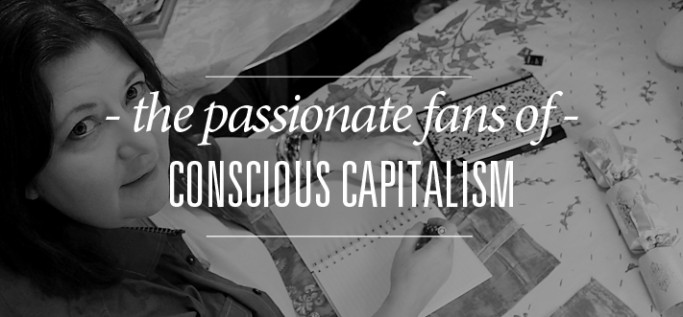
Not Business As Usual Added Love To Business
When Henry A. Gilbert was asked what lessons he would pass on to younger people at his 50th reunion of Harvard Business School’s class of 1963, he said: “success is capitalizing on economic opportunities yet treating others with over-reaching kindness”.
Darrel Kopke, founder of Vancouver’s institute B, goes a step further, and says how you treat people is the most important ingredient in building a business. He would know, as his success earned him a Business in Vancouver top 40 under 40, and he was the former GM of Lululemon. Currently at his institute B, he develops and funds for-profit social impact benefit corporations. His favorite quote is: “no snowflake in an avalanche ever feels responsible” by Voltaire.
On Apr 8, 2014, I attended the film screening and panel discussion of the institute B documentary Not Business as Usual, at the beautiful Vancity Theatre on Seymour Street, as part of my blog road trip, and to learn about business from those who are not only making money, but are making a difference.
I noticed that over half of the audience at the screening were under age 40, or Millennials, (ages 18-36), which is the fastest growing and most influential consumer group in the world.
The panel discussion following the screening was moderated by the jovial Sharan Khare, of Khare Communications.
On the panel was Mark Brand, owner of Save On Meats on Vancouver’s Downtown Eastside, age 38, and W. Brett Wilson, entrepreneur, philanthropist, formerly of CBC’s Dragon’s Den, Joel Bakan, UBC Law Professor and author of The Corporation, and David Berge from RBC, who has earmarked 20 million dollar fund to invest in environmental and social issues.
A spirited panel discussion followed the 60 minute film, addressing some of the controversial issues in the film, about creating conscious capitalism where sharing profits with the community is the rule rather than the exception. The debate between the panel and the audience highlighted how everyone in attendance cares about the world, and wants to make it better, but we all have different opinions on how to get there.
While not all young people think the same, those who study millennials, like author David Burstein says: to Millennials, making the world a better place requires building new institutions, while working inside and outside existing institutions”.
While the Boomers at the screening decried the broken democratic system that needs “fixing”, Millennials view lasting change as an oxymoron, adapting to changing trends with lightning speed. “People today vote with their minds and their dollars”, says Darrell Kopke.
While boomers call for government constraints to correct the economy, as Darrell as said: “waiting for governments to act takes too long. Political cycles are too short - businesses that start out helping the community may take longer to build a foundation, and institute b wants to stay and develop the business long term, through the good times and the bad, usually a 10 year commitment.”
Millenials know that political change is important, but they don’t get bogged down in politics. It will take years to re-invent capitalism, so they are engaged by co-creating the change on their mobile phones. Business was created by humans and doesn’t exist in a vacuum. There are no secrets with the internet, and millennials believe transparency will motivate integrity.
Millennials support conscious capitalism, which author Jeff Fromm describes as: “serving the interests of all major stakeholders—customers, employees, investors, communities, suppliers, and the environment”.
Panelist W. Brett Wilson, who has been a philanthropic leader in Canada for years, views giving back to the community as an ‘opportunity’ to help, stating: “charity is good business”. Brett recognizes that kindness sells, and makes good fodder for social media in marketing a business. A word of mouth review on social media magnifies your brand value to many.
The younger generation wield influence as they deliver ratings and reviews, and co-create with businesses in a “participation economy”. Treat them right, and they will help inspire the other one billion Facebook users to like and follow your business too. They can also hurt a business if they feel it is not doing the right thing.
The film showed that the change within people towards co-operation and empathy is being reflected in business. Socially impactful businesses strengthen communities– take Tom’s Shoes, Ben and Jerry’s, Whole Foods, Starbucks, Mountain Equipment Co-op or Luna Pads.
During the intermission, I went outside to put money in the parking meter. The “no snowflake” quote was in my mind. It inspired me to put my leftover change into the expired meter of the Mercedes convertible parked beside me. Change begins in our hearts, and like a snowflake, each small act of kindness makes a difference in the big picture.
My takeaway from the evening was that we are all connected, and that we can thank Millennials for giving us a wake-up call to be mindful of that, and that by co-operating with others and feeling empathy for them, we have added a little more love to business.
Written by, Ann Hoy.
Sources:
millennialmarketing.com/ Jeff Fromm
David Burstein: Fast Future
